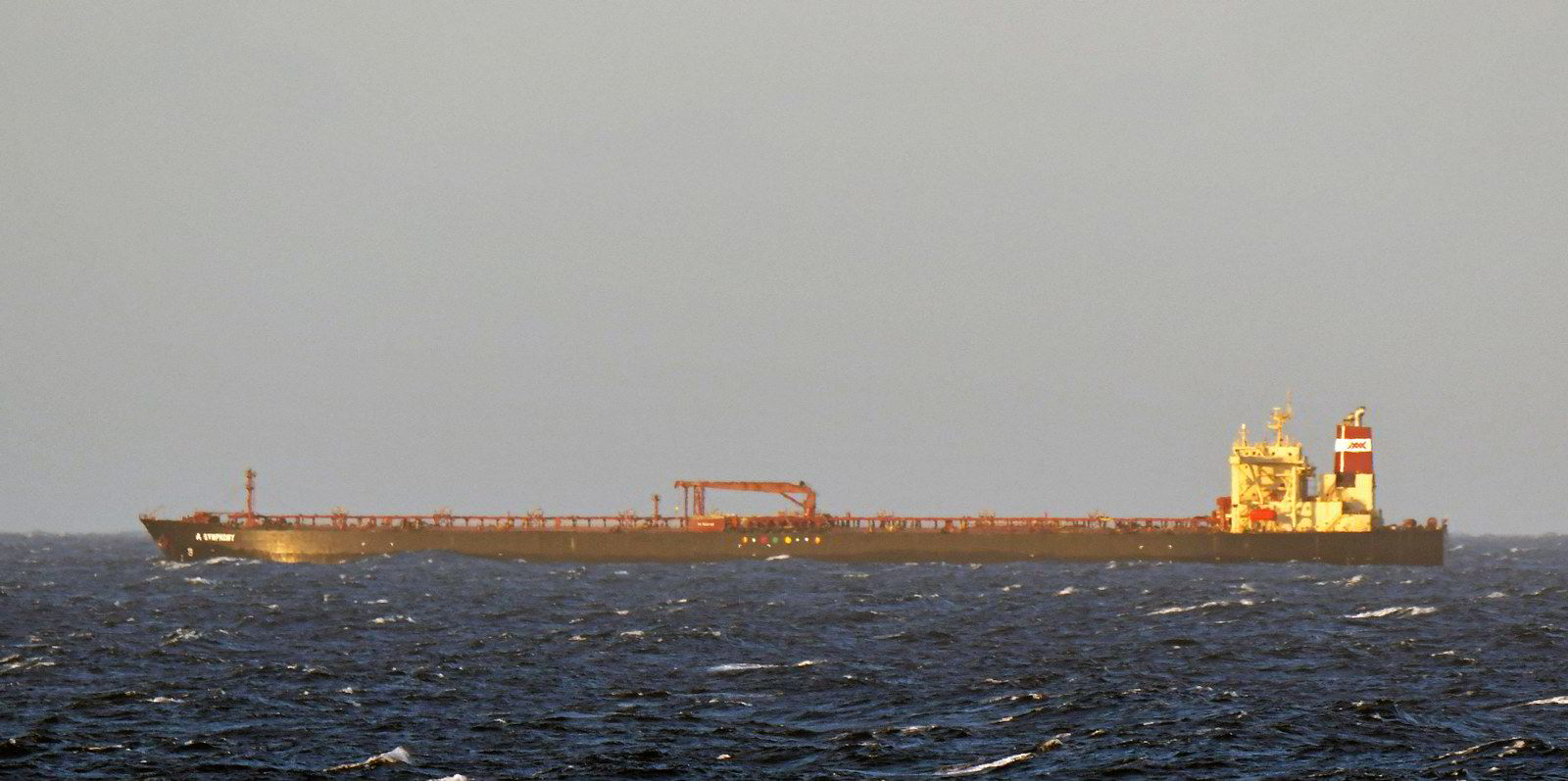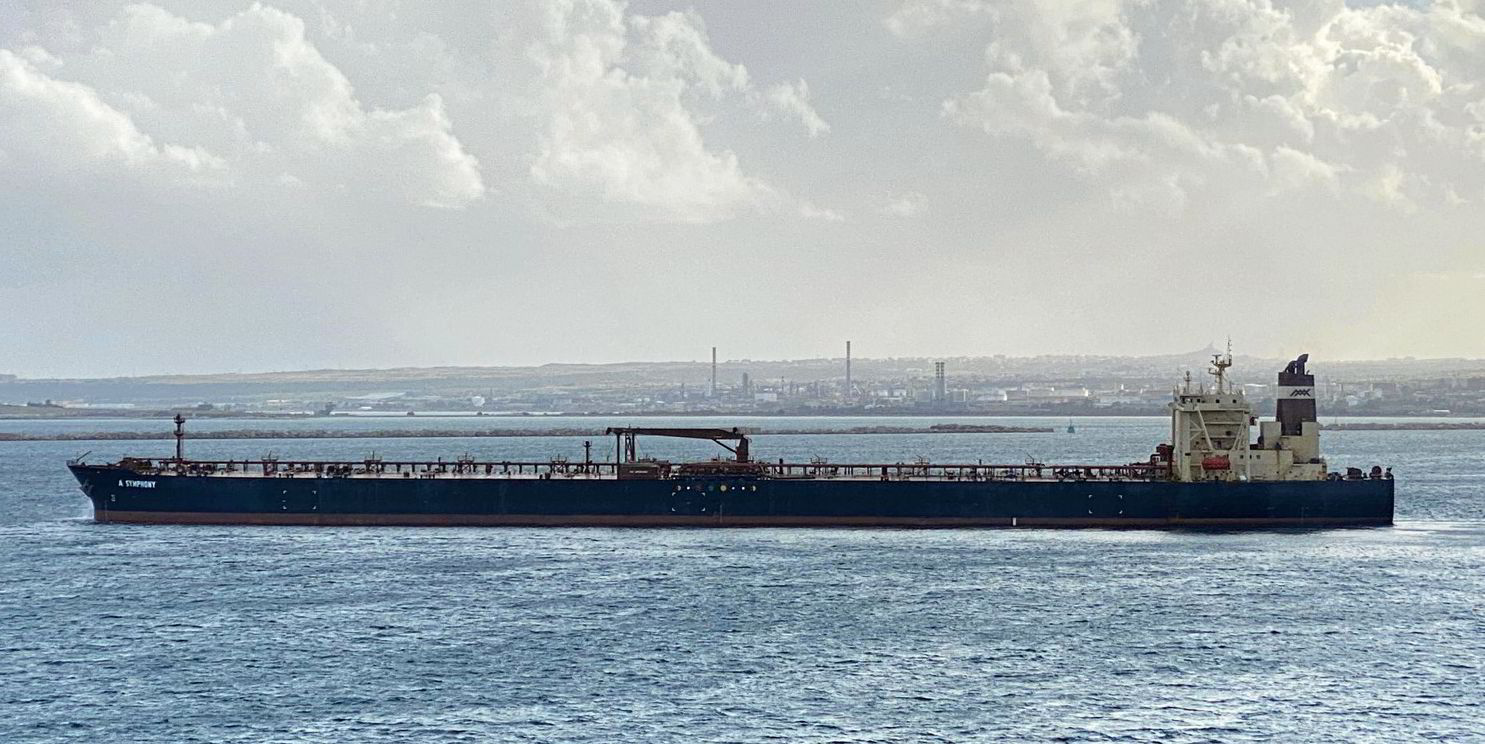A pollution response team has been deployed to clean up the oil spill from a suezmax tanker damaged in a collision off the Chinese port of Qingdao — and the ship's cargo could be removed soon.
A lightering operation for the 150,000-dwt A Symphony (built 2001) could start as early as Friday, a ship manager involved with the matter told TradeWinds.
The vessel, which has a breach in cargo tanks and ballast tanks, is expected to be repaired in China following initial salvage efforts.
The suezmax was anchored at the time it was hit by the 35,200-dwt bulker Sea Justice (built 2005) on Tuesday, according to Chinese officials.
“The tanker was damaged, and we have found a small amount of oil spill at sea,” Shandong Maritime Safety Administration said via its Weibo account. "Both ships are in stable conditions and no casualties have been reported."
A 10 nautical mile (18.5 km) exclusion zone has been established around the tanker.
“We have begun our emergency response operations and are still investigating the cause of the accident,” the administration said.
Citing an unnamed Chinese official, Reuters reported 500 tonnes of oil was spilled, based on preliminary estimates.
Goodwood Ship Management, the A Symphony’s technical manager, confirmed the ship loaded bitumen at the Linggi International Transhipment Hub off Malaysia before sailing to China.
No information on the origin of the cargo is available.
The fully laden ship was originally scheduled to arrive in Qingdao on Thursday, according to Kpler data.
Equasis data shows the A Symphony is commercially controlled by Greece’s NGM Energy and has protection and indemnity cover with the North P&I Club.
Hong Kong-based fuel trading company Run Cheng International Resource has confirmed it was the owner of bitumen on board the A Symphony, according to Reuters.
Bitumen — a blend of heavy crude oil and residue — tends to sink in water if not recovered quickly.
China has not signed up to the 1992 Fund Convention to share pollution bills with other countries.
Instead, the country established its own Ship Source Oil Pollution Compensation Fund in 2012, funded by a modest levy on oil imports.






